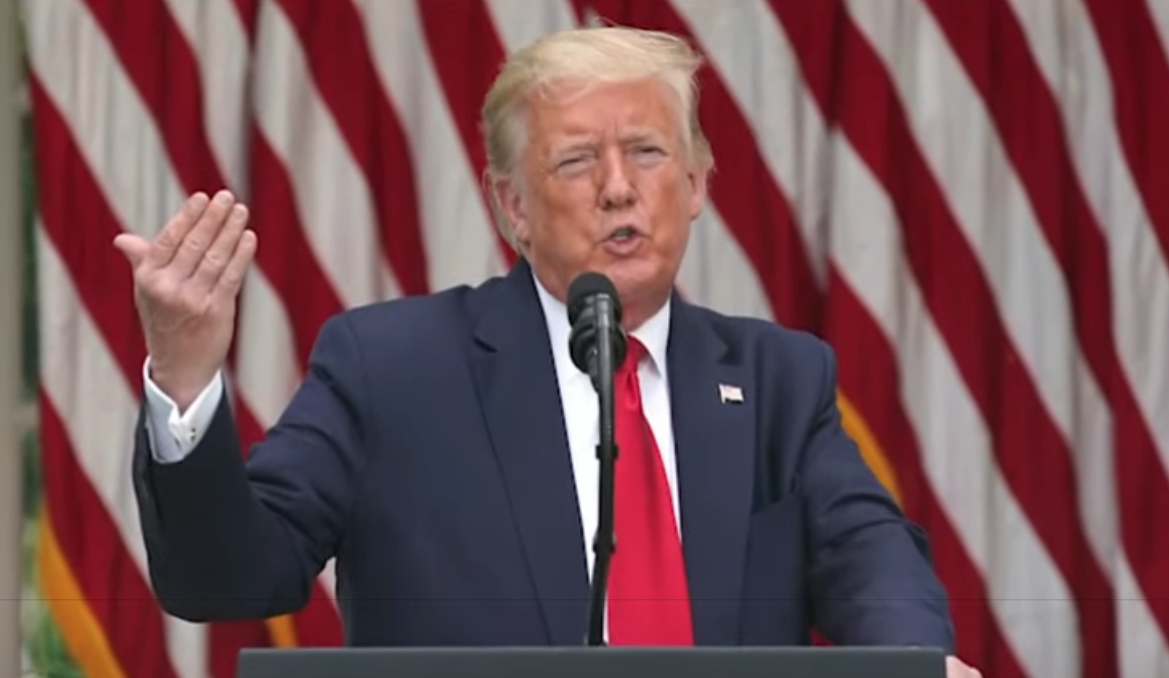Twitter’s choice to fact-check the president’s genuine concern over the hazards of mail-in voting appear to have been the last straw.
“President Donald Trump is expected to issue an executive order today that seeks to punish social media companies for making editorial judgments about the content on their platforms,” NBC News & MSNBC senior media reporter Dylan Byers wrote in his May 28 Byers Market newsletter. This came after Trump accused Twitter of interfering with the election because it fact-checked his tweet voicing concern that mail-in ballots could lead to voter fraud.
The executive order, reportedly, “would make it easier for federal regulators to hold social media companies liable for policing speech, suspending accounts, removing posts or passing judgment on the veracity of what users say or write.” CNN technology reporter Brian Fung gave further context when he stated, “The draft EO seeks to curtail the power of tech platforms by reinterpreting Section 230 of the Communications Decency Act, a critical law that shields websites and tech companies from lawsuits.”
 The Byers Market newsletter explained how this executive order would “make it easier for federal regulators to hold social media companies liable” for censoring content:
The Byers Market newsletter explained how this executive order would “make it easier for federal regulators to hold social media companies liable” for censoring content:
“It would do so by asking the FCC to reconsider the scope of Section 230, which gives social media platforms immunity from liability for the content posted by their users. The order argues that tech firms forfeit these protections once they interfere with users' speech.
“The order would also give the FTC the ability to investigate claims of bias by these platforms and prohibit all federal agencies from advertising on platforms that regulators deem to be non-neutral.”
Big Tech leaders have sparred over this controversy during the past few days, particularly Facebook CEO Mark Zuckerberg and Twitter CEO Jack Dorsey.
Zuckerberg told Dana Perino of Fox News:
“We have a different policy, I think, than Twitter on this. You know, I just believe strongly that Facebook shouldn’t be the arbiter of truth of everything that people say online. I think in general, private companies probably shouldn’t be, or especially these platform companies, shouldn’t be in the position of doing that.”
Zuckerberg made similar comments to “Squawk Box” co-host Andrew Sorkin when he explained, “I don’t think that Facebook or internet platforms in general should be arbiters of truth.” Zuckerberg later added, “Political speech is one of the most sensitive parts in a democracy, and people should be able to see what politicians say.”
Dorsey responded to this controversy by commenting:
“We’ll continue to point out incorrect or disputed information about elections globally. And we will admit to and own any mistakes we make. … This does not make us an ‘arbiter of truth.’ Our intention is to connect the dots of conflicting statements and show the information in dispute so people can judge for themselves. More transparency from us is critical so folks can clearly see the why behind our actions.”
However, recent events seem to show otherwise, as Dorsey’s platform has allowed what U.S. State Department’s Global Engagement Center Coordinator Lea Gabrielle described as “Russian-style disinformation techniques” from China to disrupt America and scapegoat its leadership on the platform.
Further still, Twitter allowed other forms of Chinese government propaganda to remain on the platform. Spokesperson & Deputy Director General, Information Department, Foreign Ministry of China Lijian Zhao even shared an article headlined “China’s Coronavirus: A Shocking Update. Did The Virus Originate in the US?” and suggested, “It might be US army who brought the epidemic to Wuhan.”






